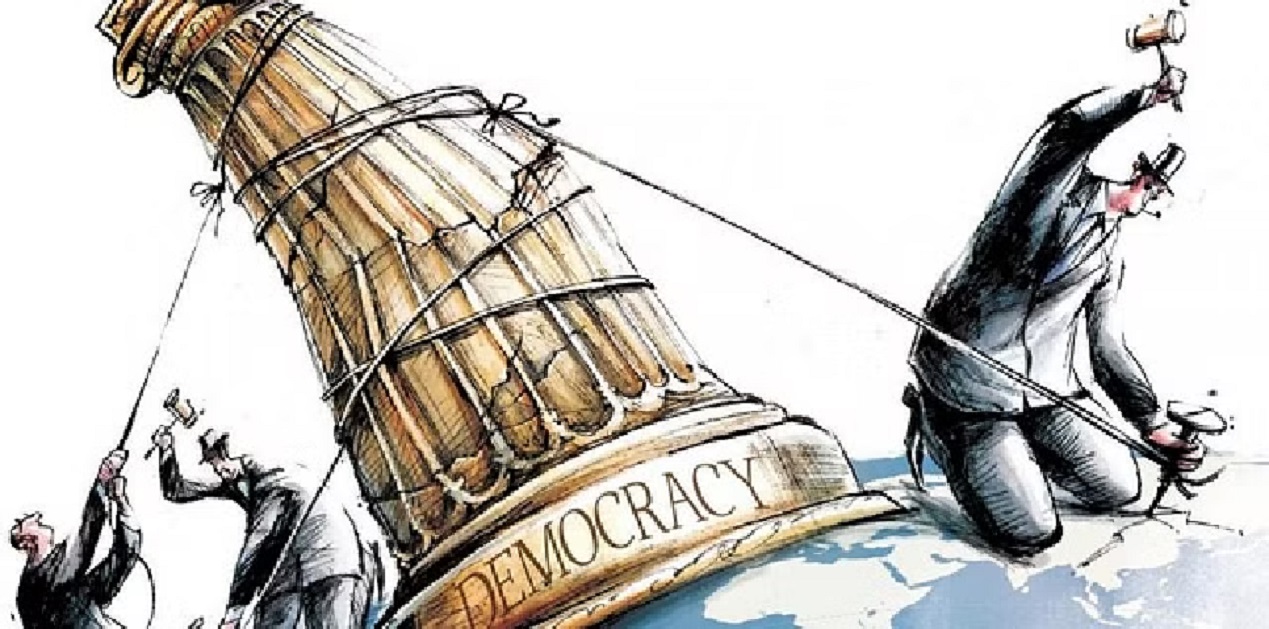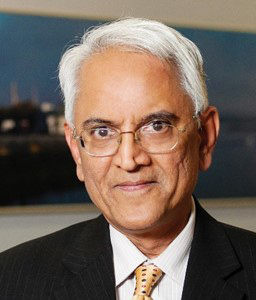Sanctions do not have a place in international law, except with UN approval. But they have become commonplace weapons in the diplomatic armoury of countries.
The social media age craves competition, comparison and instant verdicts on trends within and between societies. It generates rankings of countries on various parameters, reinforcing old stereotypes or creating new ones. Among these are a Democracy Index and a recently launched Atlas of Impunity.
The Democracy Index, annually published by the UK-based Economist Intelligence Unit (EIU), records the progression (or regression) of global democracy over the years. The index ranks countries in five categories: electoral processes, government functioning, political participation, political culture and civil liberties. Based on these scores, a country is classified as a “full democracy”, “flawed democracy”, “hybrid regime” or “authoritarian regime”.
According to the 2022 Index, only about 8% of the world’s population reside in a “full democracy”. More than a third live under “authoritarian regimes”. Interestingly, the Index “demoted” the United States from a “full democracy” to a “flawed democracy” in 2016, which is where it stayed in 2022. India has been a “flawed democracy” in the Index from its inception in 2006.
The EIU notes a stagnation in the world democracy scene in 2022, with a hint of moves towards “illiberal” democracy, with the election of right-wing parties to power in Italy and Sweden. It notes the weakness of democratic institutions and political culture in some Central European and Baltic countries. Such assessments raise hackles in these countries. Poland, for example, has an ongoing tussle with the European Union about its proposed judicial reforms, which the EU deems inconsistent with its democratic values. Poland’s argument for national sovereignty in such matters finds resonance in other countries. The judiciary-executive-legislature balance varies across democracies. Poland argues that its proposed reforms are being opposed, not so much for their content as for their presumed intent.
In February this year, former British Foreign Secretary David Miliband unveiled an Atlas of Impunity. Arguing that the narrow lens of democracy versus autocracy does not capture the complex nature of global challenges, the Atlas presents an analytical framework of impunity versus accountability, covering governance in the political, socioeconomic and environmental spheres. It defines impunity as the exercise of power without accountability, when the powerful think that “the law is for suckers”.
Impunity is measured in five dimensions: unaccountable governance, conflict and violence, abuse of human rights, economic exploitation, and environmental degradation.
The Atlas makes the unsurprising point that most countries exhibiting the highest levels of impunity are in Asia and Africa, grappling with internal conflict and economic deprivation, exacerbated by the geopolitical interests of foreign powers. Equally unsurprisingly, considering the origin of the study, most of the “liberal” democracies of Western Europe are declared to exercise the lowest levels of impunity.
The impunity rankings are in reverse order—the “best” country (Finland) is ranked 163. India’s rank of 46 means it is among countries exhibiting the highest impunity. The main contributor to this abysmal rank is the low score for conflict and violence: seventh worst in this category, purportedly because of the prevailing level of violence against its own citizens. This ranks below chronically conflict-ridden countries of the world, including Myanmar, Pakistan, Sudan and Ethiopia! The score for human rights is poor as well: worse than that of many African, Central Asian and West Asian countries, which are classified as autocracies in the Democracy Index. And then, there is environmental degradation. India, China, Russia and the US are among the world’s largest greenhouse gas emitters, but India has the lowest per capita emission among them. Yet, India is ranked 20 in this category, well below the other three.
The Atlas claims to use “universal, independent, and credible datasets”. If this is taken at face value and the obvious suspicion of bias is put aside, the analysis demands scrutiny.
It has been pointed out that a higher level of impunity is attributable to major global powers because of their involvement in foreign conflicts and large arms exports. The latest data of SIPRI shows that about 80% of global arms exports are by six major powers, with the US share being almost as much as that of the next five exporters combined: Russia, France, China, Germany and Italy. Arms exports may promote global and regional stability by enhancing deterrence, but they also fuel and sustain conflicts. The wars in Asia and Africa all feature weaponry of one or more of these six powers. It is not clear what weightage has been given to this aspect in the impunity rankings.
The adherence to international law by major powers is relevant in a study of impunity. Their accession to international treaties and the level of compliance with them depends on their power, national interests and—simply—what they can get away with. Russia in Ukraine, the US in Iraq and China in the South China Sea are only the most egregious examples.
The US and Russia are not parties to UNCLOS, the treaty codifying international maritime law. The US is not a party to the Statute of the International Criminal Court. This did not prevent it from applauding the Court’s investigation of alleged Russian war crimes and issue of an arrest warrant against President Putin. Four years ago, the US imposed sanctions against an ICC prosecutor investigating possible war crimes by US soldiers in Afghanistan. The then US Secretary of State (Pompeo) described the ICC as an “unaccountable political institution masquerading as a legal body”.
Sanctions—exercising the economic leverage of the strong over the weak—do not have a place in international law (except with UN approval). But they have become commonplace weapons in the diplomatic armoury of countries. There is a hierarchy of impunity: secondary sanctions, through which third countries can be “punished” for dealing with a sanctioned country, are the weapons of the really strong. The US Act, CAATSA, under which a country entering into significant defence transactions with Russia could be denied access to the US market, directly targeted India. CAATSA also covered major energy pipeline projects with Russia; this was aimed at Russian gas import projects of Germany and Turkey. The US State Department stated publicly that these measures are intended to serve US geopolitical and economic interests by weaning defence and energy partners off Russia.
Only an equitable and representative world order can attenuate levels of impunity in global affairs. It is nowhere in sight today.










Post new comment